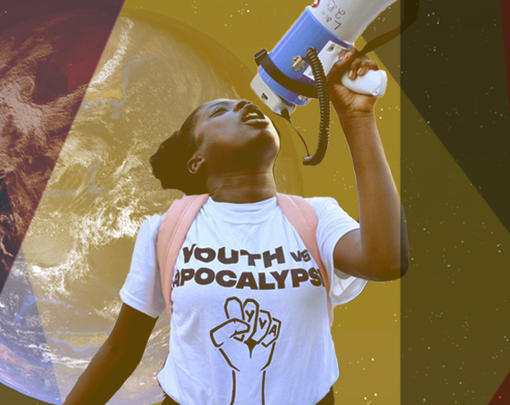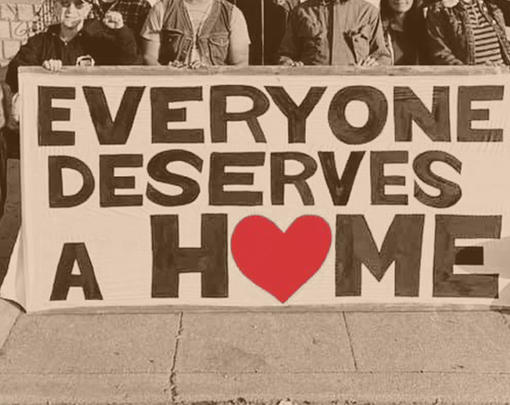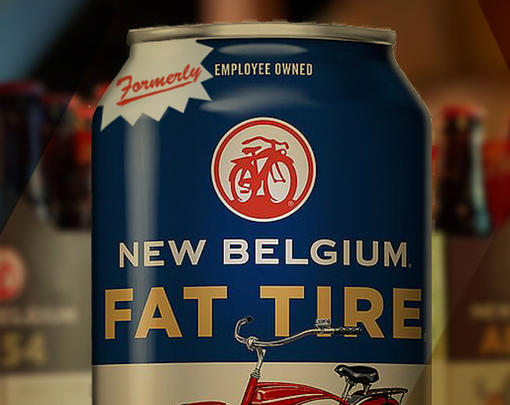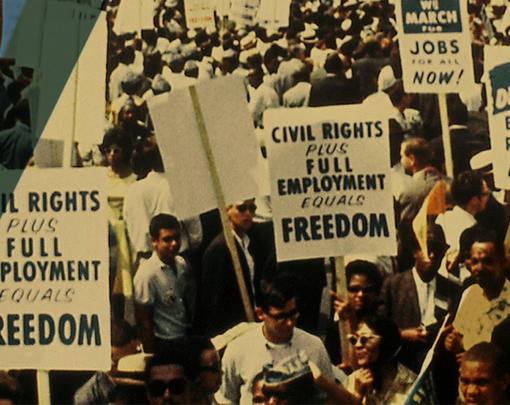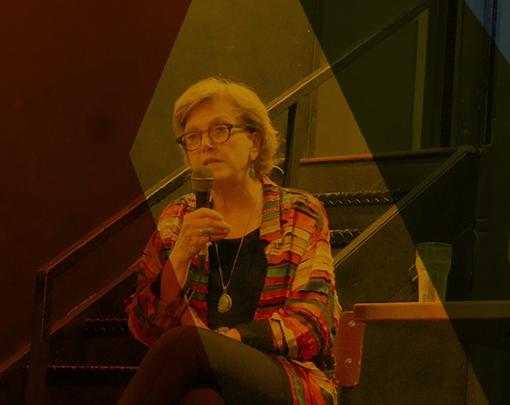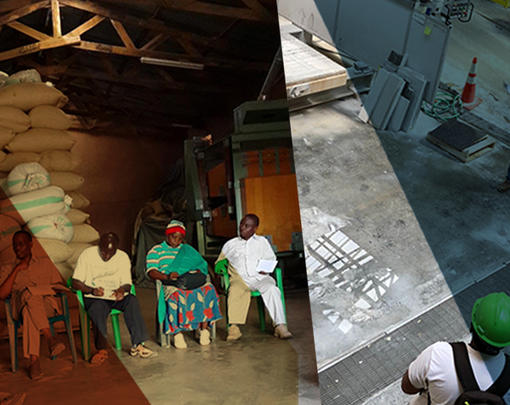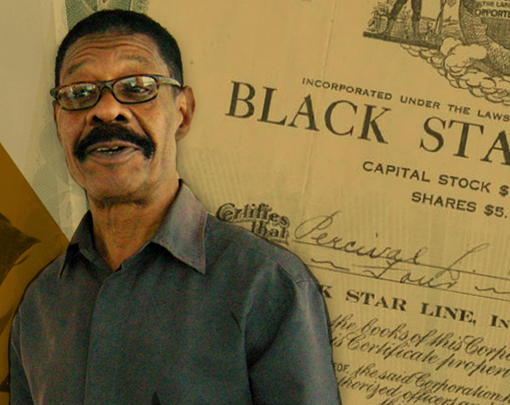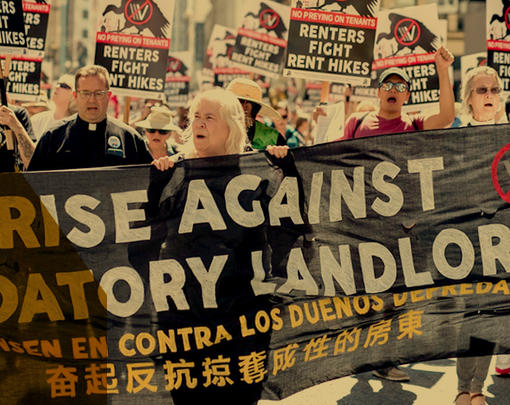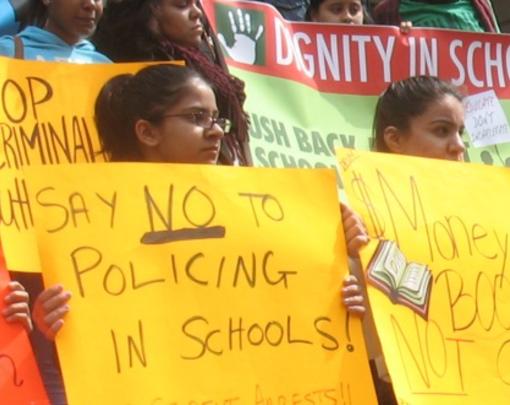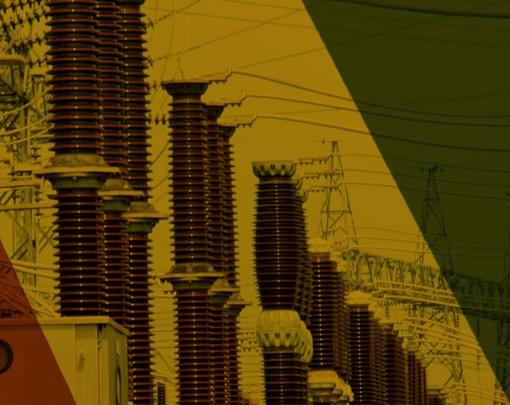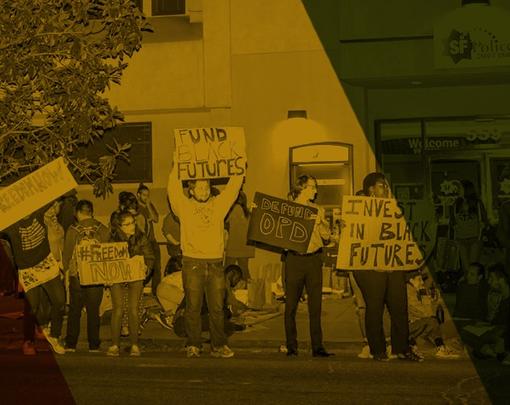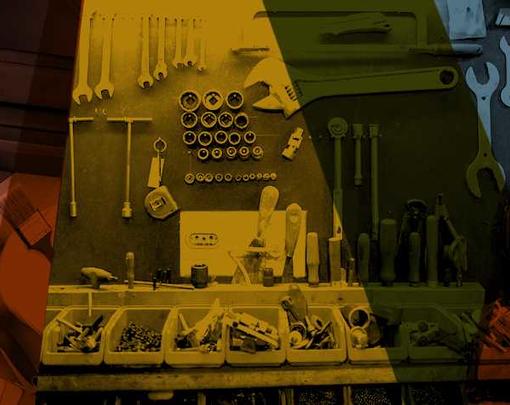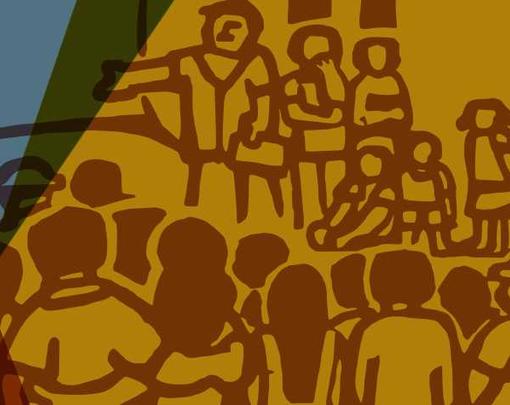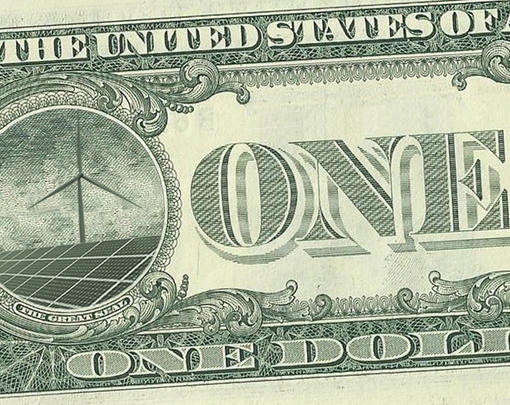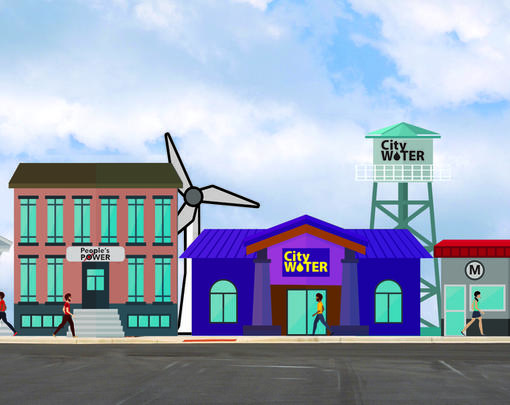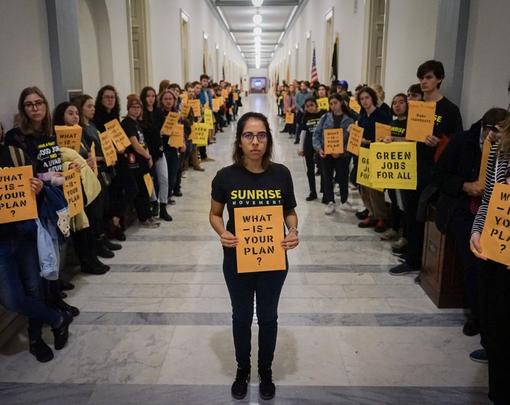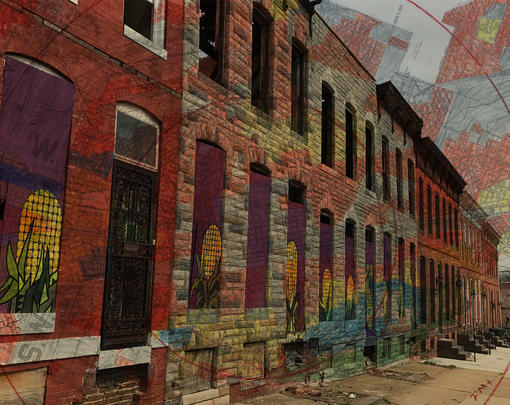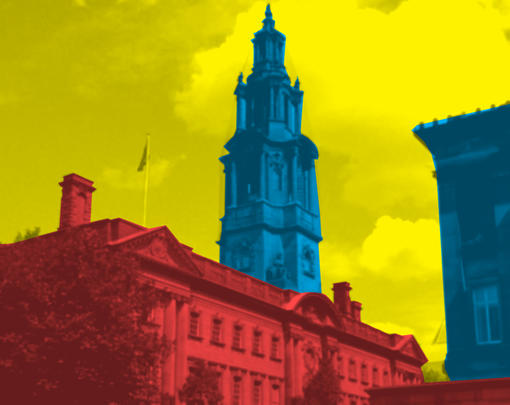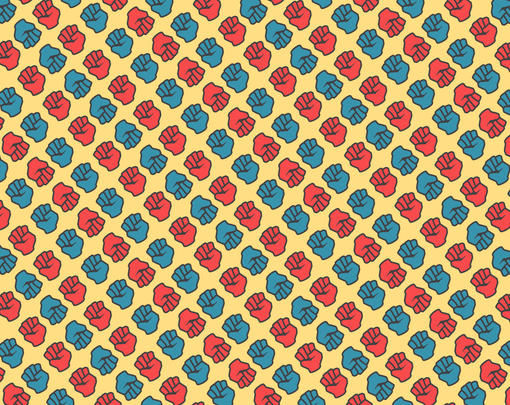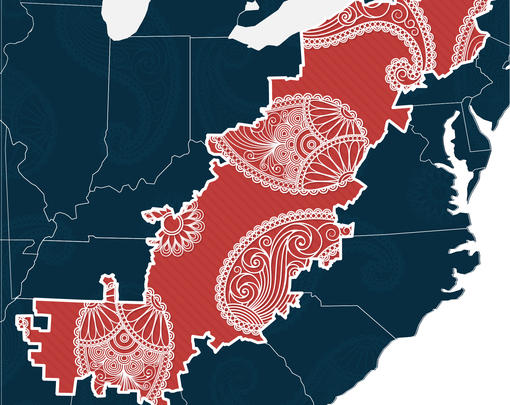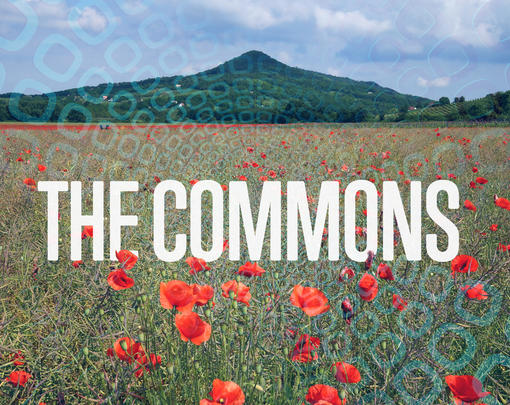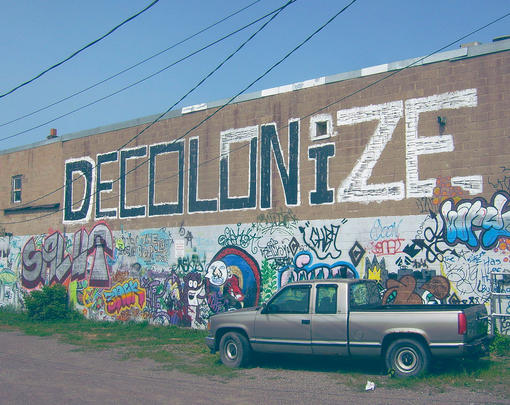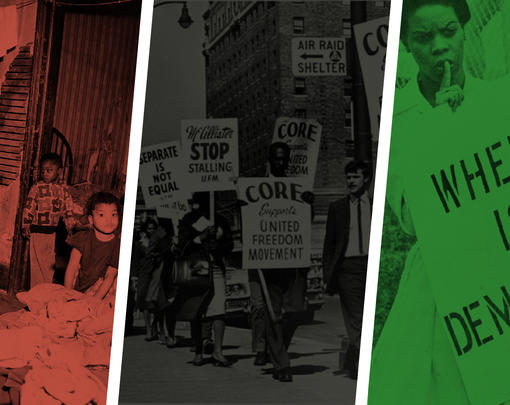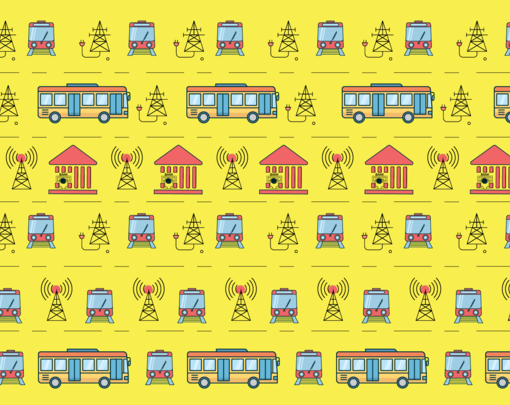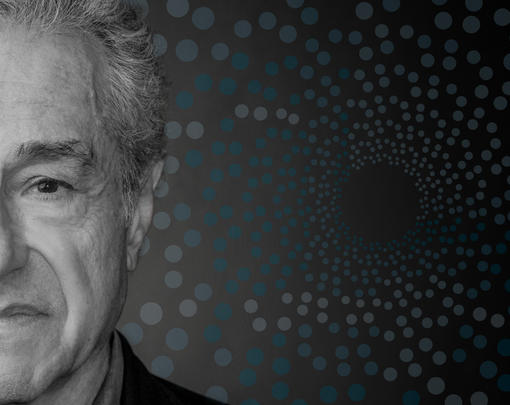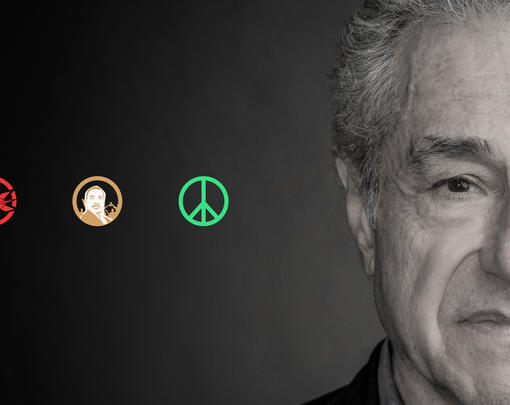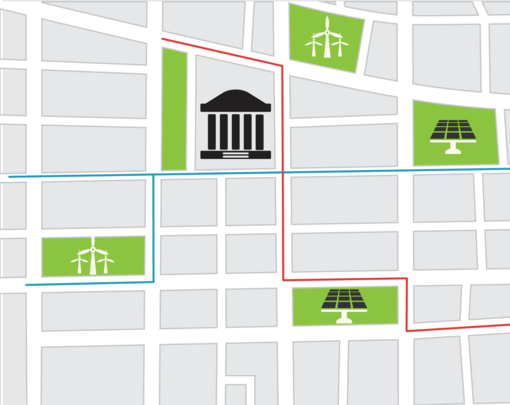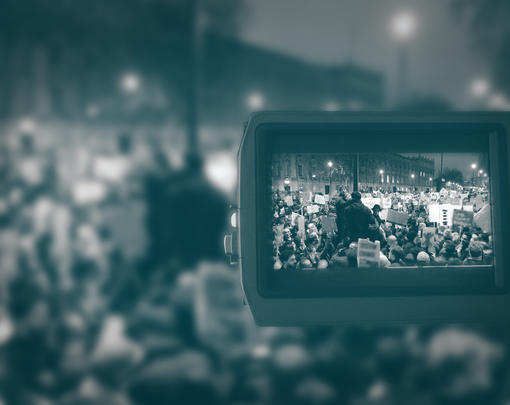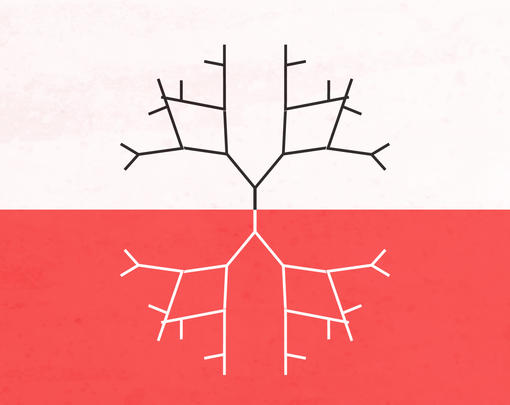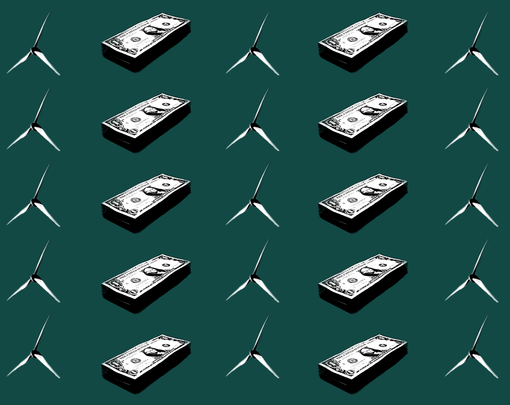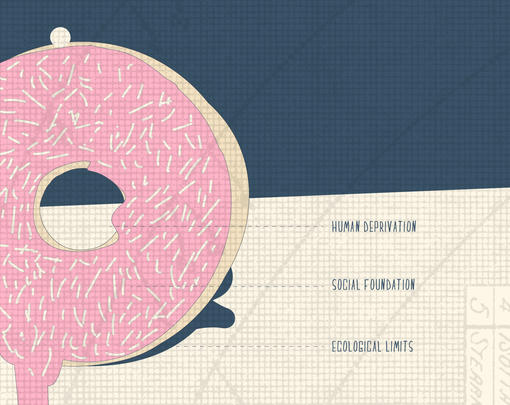Next System Project Co-Chair Gus Speth joins the Next System Podcast to discuss his experience with the environmental movement and how that led him to the work on systemic change that he pursues today.
Subscribe to the Next System Podcast via iTunes, Soundcloud, Google Play, Stitcher Radio, or RSS.
Adam Simpson: Welcome back to the Next System Podcast. Today’s guest is Co-Chair of the Next System Project, James “Gus” Speth, here to talk about his experience with the environmental movement how that led him to system change. In addition to co-chairing the Next System Project, Gus holds fellowships at the Democracy Collaborative, the Tellus Institute, and the Vermont Law School. His history of environmental activism includes the founding of the World Resources Institute and co-founding the Natural Resources Defense Council. He’s also served as the Administrator of the United Nations Development Programme, Chair of the US Council on Environmental Quality during the Carter Administration, and Dean of Yale’s Environmental School.
Gus, welcome to the Next System Podcast.
Gus Speth: Thank you, I’m delighted you’re doing this series.
Adam Simpson: Yeah. I’m delighted to have you today. I actually want to start beyond the biography and the resume that I just read. Because as someone that comes from the American South, it’s always interesting when I meet another progressive Southerner. I understand that you’re from South Carolina, and I have to be honest, I’ve only just scratched the surface of your memoir. The first chapters were quite fascinating, but I’m wondering if you might comment on what that kind of context and background meant to you in your kind of journey to where you are today with the Next System project as well as with the environmental movement and broader progressive ideas.
Gus Speth: I think a critical thing is growing up in a rural area. We were outside. We were in the woods. We were on the streams. We were on the ponds fishing, hunting and just tremendous exposure to what was, at that time, clean environment and a nice place full of wildlife. When we started the Natural Resources Defense Council officially in 1970, we all realized that something had predisposed us to get into this area—usually when we were quite young. That background in the rural part of South Carolina was certainly what did it for me, plus the fact that one time I went to visit my grandmother who lived in the summers on a beautiful lake in North Carolina, and when we got back, a long stream of visits that I made to her every summer, we found that the lake was dead. Totally polluted. Totally destroyed. No fishing. No swimming. Stay out signs all over the place.
Adam Simpson: Was this from some sort of industrial pollution?
Gus Speth: It turned out that it was certainly from an industrial dump. We believe then, I guess I still do today, that it was tannery waste that had basically killed the lake. Anyhow, that sort of connected the dots for me. There were two sides to this. There was the sort of bucolic life back in Orangeburg, South Carolina and then that was the possibility of something really terrible happening.
Adam Simpson: Very direct exposure to the idea that the environment and the economy are not two different systems.
Gus Speth: Not two different systems and also that we also just happened to be in school, in college, and in law school, and graduate school—in my case, all three—during the 60’s. This was a time of ferment. In law school, the group of us decided to get together and do something interesting with our degrees. We basically started the Natural Resources Defense Council. We were inspired by the civil rights movement in that. Totally inspired by people standing up, speaking out, taking risks, marching, litigating, getting good lawyers to represent them, going to court, getting legislation passed. We had seen all that happen in the civil rights era, and we wanted to do it for the environment.
Adam Simpson: That’s really interesting. In my mind, regarding the institutions that the civil rights movement was up against, I feel like in a lot of ways, it’s very clear how they’re economically connected. In other cases it’s a bit less clear, but with the environment I feel like most of the time when you talk about environment regulation or litigation you’re often directly confronting and conflicting with economics and big business, and things like that.
Gus Speth: Yes. Well it was certainly true. Almost simultaneously with the launch of our group and the Natural Resources Defense Council in 1970, Louis Powell, a lawyer who would soon become a Supreme Court justice, wrote a memo at the request of the Chamber of Commerce. He laid out a plan for fighting back against federal overreach, against federal regulations, against federal taxation, against these new causes that were coming up in the 60’s that were getting government more and more involved. That memo really started what we now see as the right wing reaction to progressive causes.
We had these progressive causes rising at the same time that the opposition was coming together. It’s been steady ever since. I think they have, on many issues, outspent, outmaneuvered us, and we are paying a big price for that.
Adam Simpson: Sure. Yeah. My next question was about your experience in government working for, and with, broader institutions like the US government with the Carter administration or with the United Nations. If I might just sharpen that broad question a little bit for you—what did you think you learned about being within “the halls of power”, what did you learn about the importance of informed and engaged leadership versus the importance of a mobilized and active movement?
Gus Speth: I see them as symbiotic really, and mutually supportive. It often comes together in a campaign, political president or whatever that movements are born. The best things happen when they continue after the election. All the work that’s been, the people that have been mobilized continue. We certainly had a strong environment movement, for example, in the country by the time Carter was elected in 1976. The whole environment thing had exploded and it was a big movement. Carter, it turned out, was perhaps the only president we’ve had who really internalized an environment ethic. He was a real environmentalist. We had, not only good leadership, but we had this movement that was pressing to do some things and not do other things.
The UN, I saw something different happen to me there. I really saw the, I love the UN, and I think what we did was really, really good, but I also saw that the development model that many, many other institutions in the UN apart from our program were pushing on the developing countries, on the third world, was a very inappropriate one. It was perpetuating the wrong system. It was pushing neoliberalism on these countries.
Deregulation. Getting government out of this, not the social welfare program, cutbacks and other things, structural adjustment was going on. It really convinced me, I began really at that time to see that there were alternative systems. The one that was being pushed principally by the World Bank was not the one that was best suited to the needs of the people in the developing world.
Adam Simpson: Yeah. Absolutely. I recall from my time when I was in Cairo, one of the big political controversies regarding IMF deals or the WTO, was them trying to make Egypt pull back its subsidy on fuels and other government subsidies. Regardless of how I feel about fossil fuels, it seemed that with the level of wages of people in Egypt, the idea of kicking this burden onto them, it seemed like a very odd fixation. This fuel subsidy thing, when people could barely afford bread.
Gus Speth: There also are bread subsidies that got taken away. I think that was all part of this sort of structural adjustment initiative to reduce the government’s hand in everyday life. To turn things over to the market, to open the country up for trade. It was done very quickly, in some cases—shock therapy, particularly when the Soviet Union collapsed. It was clearly promoting a model of development, which we would call neoliberalism. It’s really one that breeds a lot of inequality, and a lot of deprivation, and the marginalization of local industries and other things.
Adam Simpson: I didn’t want to move too far from Carter before mentioning it strikes me that he’s not only one of the few presidents that’s internalized the environmental priorities, as you suggest, but also is one of the few modern presidents that was also a farmer. It strikes me as kind of unique to Jimmy Carter, if I’m not mistaken, that kind of connection to the environment.
Gus Speth: He was very connected to the land. He started his interests back as a farmer in Georgia. Became a leader in environmental things before he was elected governor in Georgia. I think being close to the land can make a difference. It doesn’t always, but it can make a big difference. Most people I have known who got into, in a passionate way, some progressive field had something that predisposed them in their backgrounds.
Adam Simpson: As we move along, I do want to ask about how priorities have become politicized. The EPA was created by Nixon—and priorities like clean air and clean water at some point seem to not been quite as controversial and contested as they are today. Is that a correct frame of reference—that environmental issues have become overly politicized and why do you think that might be today?
Gus Speth: Well I think that that has happened, absolutely. It’s probably best demonstrated by the track of the League of Conservation Voters. They do a rating of all members of the Congress, and then they collapsed them and you can see how the Democrats voted, and how the Republicans voted from 1970 up until the present. You have these nice little graphs, and what they show is that in those early years that you mentioned where so much got done in the early 70’s. EPA was created, the Clean Water Act was passed, the Clean Air Act was passed, the national environmental policy act was passed, all in those early 1970’s. At that period there was very little partisan difference in the voting.
Over time, what has happened is that the rating of the Democrats has gone up, up, up, and that of the Republicans has gone down, down, down, and I would say now it’s very hard to find a Democrat with a bad environmental voting record, and it’s very hard to find a Republican with a good environmental voting record. It’s just as stark a contrast as it can be, and of course that’s very unfortunate. When we cut our teeth working on these issues, we were dealing with a bipartisan groups in the congress. Senator Howard Baker, a Republican, worked very closely with Senator Ed Muskie, a democrat, to write these laws.
Doesn’t work that way today, unfortunately. There are huge costs of course. I think what’s happened on the climate issue is one of the biggest, and you know what? I think that happened in part because of bigger trends that were going on in the country. I think probably same pattern could be shown for a lot of issues, not just environmental ones. I think there were, people were, parties as a whole were becoming more distinct in this sense. The number of swing congressional districts that might go either way in an election has now almost vanished. It has a lot to do with the culture, and the demographics, and FOX News.
Adam Simpson: It recalls, as we talk about your latest work, “The Joyful Economy”—part of the Next System’s models papers. You said environmentalists have go beyond just protecting biodiversity and reducing carbon emissions, and should be equally concerned about things like gerrymandering and campaign finance reform. How does the environmental movement and positive environmental outcomes link in your mind to positive or effective democratic institutions?
Gus Speth: I’ve put it this way, you have to ask again now, anew, what is an environmental issue. When you ask that question, one broad answer is it’s a list of things like air pollution, and climate change, but another way to answer it is to say that an environmental issue is whatever has a big impact on environmental outcomes. Anything that really affects environmental prospects, environmental outcomes, ought to be thought of as an environmental issue. When you think about it that way, what you see right away is that the health of your political system, our failing democracy, the great power of money and corporations in our political life, that’s an environmental issue. It has a huge impact on environmental results.
These gaping inequalities, these insecurities in our society, these have a huge impact on environmental outcomes. People are scared. People are easily motivated by their concerns about jobs, and prices, and the health of the economy—so-called. The social conditions in a country are a huge factor in environmental outcomes. Our own consumerism and lifestyles are huge factors in environmental outcomes. The nature of the corporation, the motivational structure of the corporation. What are businesses striving to do? To make a profit and grow, and that has a huge impact on environmental outcomes.
All of a sudden, we have this realization that environmental success is dependent on changing all of these things, and not merely on putting a regulation on the price of carbon, although that would be nice. When you realize that if the environmental outcome is dependent on all of these factors, it is also true that environmental problems are really the outcome of a series of features, key features, of our system of political economy. The political economy that we have today, those features that I’ve mentioned are the root of environmental problems. If you really want to do something about environment, much bigger than we’ve done so far, we’re going to have to change the system.
Adam Simpson: This is I think one of the first arguments you make in “The Joyful Economy,” is this constructive criticism of where environmental groups, or the environmental movement, has started and where it is today. We have all these regulations, and you say ”you shudder to think what would happen if they weren’t there.” But beyond that we have to move—the environmental movement must move—to questioning the underlying systemic foundation, which destruction and harm is built on.
Gus Speth: Well we’ve run a 40-something year experiment on whether working within the system can succeed. What we’ve learned is that we can do some modest things to clean up the most acute problems. We’ve done that. We’ve also learned that we’re on the cusp of ruining the planet after 40 years of effort of working within the system. It’s time to change the system. I’ve talked to many environmental organizations about this, and there are some that I think understand this, but some of the major organizations are very, very slow to change and to adopt a broader approach. I think the easiest thing for them to do would be to get into politics a lot more than they have.
This means, first off, reforming our political system before its too late—rolling back Citizens United, doing the other dozen things that need to be done, to reform the system—but also fielding candidates and getting into electoral processes. They really need to be there, the Tea Party showed what could be done. I think environmentalists need to join with other progressives and be sure that, particularly now, that 2018 is a year in which we are running progressive candidates all over the country and winning.
Adam Simpson: Right. I’m also curious when it comes to, when we think about systems and how our current system of capitalism, what do you see as the main systemic things that lead us to environmental harm. How do we articulate the systemic causes of ecological destruction?
Gus Speth: When you talk about changing the system, it is true that some people’s eyes glaze over. It is a big thing. It’s awfully hard to get your head around the whole picture. What I’ve tried to do is to break it down into a dozen areas where we need to make a transition. They’re still big areas, but you can see the path in each of these areas and then mutually reinforce it. One of them is political reform, reform of the political system. One of them is to inject a far more democratic control on investment decisions. I think this is a critical area that’s been badly neglected. Right now, the banks and the big corporations make almost all the investment decisions. Sometimes government is in the picture, but usually to their benefit.
We need to have a strong democratic thumb on the direction and course of investment decisions. The nature of the corporation. We need a pincer movement that would, on the one hand, assist in the building up of a new generation of socially motivated corporations—the whole world of coops and the solidarity economy, and other things, a lot of which the Democracy Collaborative is a leader on. On the other hand, we need to have programs that gain, over time, a strong component of democracy and the leadership of the large corporations. There are a lot of ways to do that, but as I say, I’ve identified this dozen areas where you could, you need to specify and can specify policy initiatives and other measures that could collectively move us to a new system.
Adam Simpson: Beyond policy changes, you also note a change in values is essential and seemed to be a very important part of your model as I read your paper. I was wondering how you view, what kind of cultural or mental shifts you see as critical to informing the system change?
Gus Speth: People tend to think about cultural change or value change as something that is that you can’t do anything about. It either happens or it doesn’t happen. Things evolve or they don’t evolve. I think that’s wrong. I could give a list of ways in which we can affect cultural change and value change, but on the directionality of that change we clearly have moved to a hyperindividualism where people are expected to perform on their own or sink, where the sense of solidarity and community has been diminished. It’s been well documented now and captured in the phrase “bowling alone.”
Levels of trust have gone down, and so has the kind of communitarian vision of people looking out for each other and being part of a powerful community that sticks together, both at local levels and other higher levels like the national level. That’s certainly one big area of change. I think we’re severely anthropocentric people. We have this view that the rest of nature and its creatures are here for us as our resource—that they somehow are in a lower order than we humans are, and that they don’t have rights. I think we have to transcend this anthropocentrism, and the philosophy of Aldo Leopold, in his Sand County Almanac, is often the reference point for this. In the logging world it comes up with the question “should trees have standing to sue?” That’s a second area. The third area of value change is our extraordinary materialism.
Adam Simpson: Continuing consumption.
Gus Speth: Endless consumption. I think we have to realize that consumption is absolutely necessary up to a point, but when you start trying to meet non-material human needs by buying more stuff, or with more materialism, all the studies show that fails. People are left in an endless cycle of not getting to the realization of their higher aspirations and needs—because you can’t meet non-material needs with more material things. At that point what you have is consumerism. Consumerism is very different from consumption. It’s basically a misdirected enterprise that will fail us and is failing us. Pleasures are very fleeting.
People habituate almost instantly to new gadgets and new things. A lot of consumerism is driven by status gains and when everybody begins to get the same thing that you have you no longer have that extra status. All this has been thoroughly studied in many disciplines. I think, there are many of these area of value change. I would say another is what artfully is called contempo-centrism, which is an extraordinary fixation on very short term things. It’s in our business models, it’s in our politics. It’s in our lives. It’s the opposite of caring about the future, about caring for future generations. I was in government, we wanted to have a seminar on caring for future generations, and somebody said: future generations, what have they done for us? On we go. There is a list of cultural dispositions, cultural habits of the mind that keep leading us astray.
Adam Simpson: My final two questions are really about the theory of change in your work. Part of it involves being prepared for crisis, because part of our current system is the reproduction of crisis. I was wondering if you might say a little bit about crisis and how you situate it in a theory of change. Obviously no one can predict a bubble until it bursts—but I’m wondering if you foresee any particular areas where people should be prepared for a kind of crisis of some kind?
Gus Speth: I think that crisis-driven systemic change, the kind of crisis that delegitimizes the system is going to be essential to making big changes. I wish I could be more optimistic than that, but I think we are highly likely to see these kind of crises happen. If we look to the, just recent past, we see that the extraordinary recession in 2008 led to the occupy movement, and that had a lot of spinoffs even though some of the particular occupations have faded away, but it certainly put the 99% mantra and the 1% ers out there.
A similar thing has happened around the crisis of physical insecurity and murder in black communities by the police—giving rise to the Black Lives Matter movement. We are seeing the outpouring, really, of a climate justice movement and Native American rights movements from events like the fight against the Dakota Access Pipeline and other things. I think events will drive us to launch movements. The important thing that I see happening now, and it may be the one good thing coming out of the Trump administration, is that people from different points of view and with different issues are mobilizing together. I think there are over 6,000 groups that have organized, and the country as part of this follow up to this Indivisible report, and there are at least two fairly major efforts now to support young candidates running for office.
So there’s a lot of fusion of progressive forces now. A lot of it is resistance, but I would think that as things move forward, it will go beyond resistance to positive things in terms of electoral politics and joining forces to get some very important initiatives done.
Adam Simpson: This actually goes perfect to my final question is that, the Trump administration, the thing that frightened me about where progressives were heading is they kept talking about how we defend what we’ve already got, but it seems to me there are many movements that are moving to okay so what do we actually want. Not just how do we keep what we have. How do we get to where we want to go? That leads us to bright spots in this fusion that you’ve talked about. That’s mainly how I wanted to end this is what you see as those bright spots are. I know you enumerated, for instance, the Occupy movement after 2008, the Black Lives Matter movement, but what other bright spots do you see emerging as kind of levers of action in democratic change?
Gus Speth: Yeah. All these things are coming and I think they are people who are seeing the commonality, the platforms now that most people are using online to build this connectivity. We’re going to see the web of webs evolve. I think it will develop and take leading shape in terms of the need to elect better representatives in our federal government, but also these other groups are also talking about building the bench.
Getting young people to get into electoral office it’s a local level and things like that. I think this is the great thing that’s happening right now. I think the other thing that is related in terms of getting positive is that the time that we are losing thanks to the Trump administration, is going to cause people to think about deeper solutions. Just take the climate issue. We’re going to have to do things in the climate area in a more far reaching, more or substantial way when we get back into a position to do those things because we will have lost that time, and that time on these issues is precious.
Adam Simpson: Sure. Well that’s all the questions I have for you today Gus. Thanks for joining us today.
Gus Speth: My pleasure.
Adam Simpson: I hope we can do it again sometime.
Gus Speth: I hope so.
Adam Simpson: We’ll see everyone next time on the Next System podcast.



